For years, the tech community has comforted itself with the idea that “privacy is dying.”
But that’s not quite true. Privacy isn’t dead — it’s being sold, quietly, piece by piece, wrapped in UX patterns and terms of service that nobody reads.
The Slow Leak Economy
Most users never experience a “big” data breach personally. Instead, their identities erode over time:
A photo uploaded with EXIF data reveals their exact location.
A “free” weather app requests access to contacts and motion sensors.
A loyalty program logs purchase history tied to email and credit card tokens.
Each seems harmless in isolation. But together, they form a behavioral profile more detailed than any government ID.
The true genius of surveillance capitalism is that it monetizes consent fatigue. People click “Agree” not because they’re unaware of risk — but because resistance has become exhausting.
The Economics of Privacy Leakage
Data brokers operate like invisible middlemen, aggregating fragments into actionable intelligence.
1–2 USD: basic personal info (email, age, gender).
10–20 USD: detailed consumer data (location trails, browsing habits).
200+ USD: full identity packages — verified, cross-matched, ready for fraud or profiling.
Every “free” convenience — autofill, single sign-on, AI-powered personalization — feeds this chain.
Your attention fuels algorithms; your metadata feeds markets.
The Consent Illusion
Regulations like GDPR and CCPA were milestones, but they can’t fix a deeper issue: the asymmetry of awareness.
Users are overwhelmed, while platforms remain opaque.
Even “privacy dashboards” often obscure more than they reveal — full of toggles, but few truths.
When companies treat privacy as a compliance obligation instead of an ethical constraint, trust becomes a temporary UX feature, not a long-term value.
What Technologists Can Do
For developers and engineers, the next frontier of security isn’t just stronger encryption — it’s data restraint.
Collect less.
Expire data faster.
Design for transparency and user autonomy.
Default to local computation over cloud dependency when possible.
Decentralized identity systems, privacy-preserving AI, and zero-knowledge proofs are steps toward reducing data exposure. But the biggest cultural shift must come from within: respecting what users didn’t choose to share.
The Takeaway
Privacy isn’t disappearing — it’s being fragmented and commoditized, traded in bulk while users are distracted by convenience.
The most dangerous data leaks aren’t the ones that make headlines — they’re the ones you consented to.
If we want to rebuild digital trust, we have to stop selling privacy in parts — and start treating it as a system-critical dependency of every product we design.
Comments URL: https://news.ycombinator.com/item?id=45563699
Points: 1
# Comments: 0
Source: news.ycombinator.com

